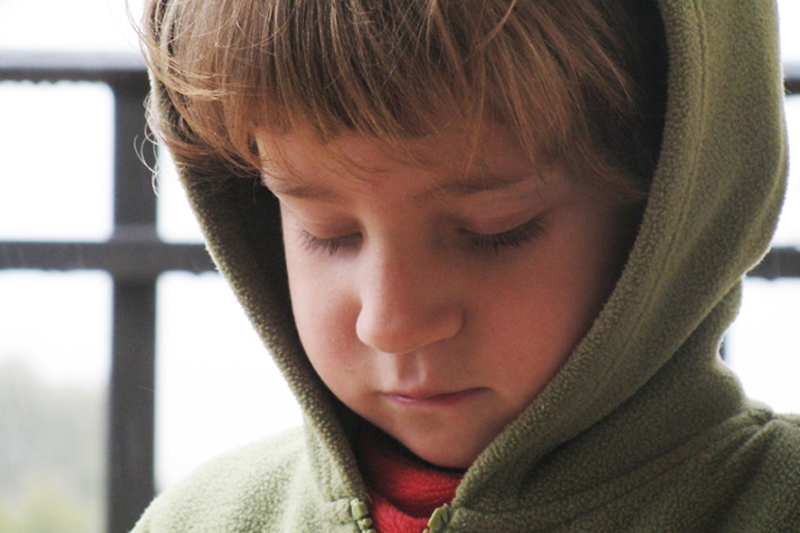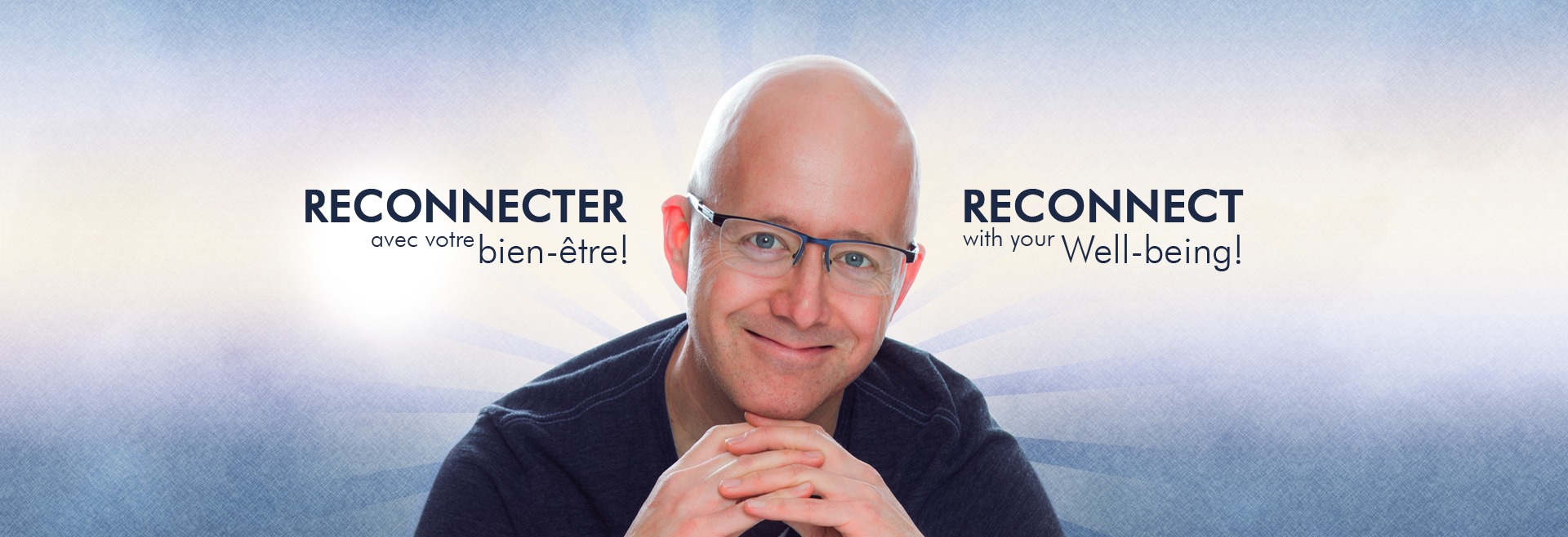
The Fear of Rejection and the Need for Belonging!👨👦
Wound of rejection. As we all know, human beings are motivated by a deep desire to connect and share common experiences with their fellow human beings! This sense of belonging is what helps the individual to recognize himself; his value, who he is, and what he has to offer.
While growing up, the child sees himself through his parents’ eyes — Helping him define his value and his place in the world. In the particular case of this wound, the parent involved is the one that the child wishes to model himself after… Often times the same sex parent!
The wound of rejection touches on a basic need; to be loved for who we are and what we have to offer. In that sense, it is responsible for the greatest emotional challenge any human being can face; to love and accept himself unconditionally!
Of all the five great emotional wounds (abandonment, rejection, betrayal, humiliation, injustice) that arise in early childhood, rejection is arguably the most persistent and the most damaging. It directly reduces self-worth, self-esteem, as well as burdening the way we connect with others.
From Disinterest of Others to Self-Devaluation 😞 wound of rejection
On an emotional level ❤, the hurt of rejection usually arises when the child feels like he is arousing disinterest or indifference – which may be real or simply felt! Empty and indifferent gazes, insensitive words, sighs of exasperation, busy and unbothered parents, the feeling of being too different… Sometimes it doesn’t take much to create this feeling of rejection in the child; and which can intensify with recurrence.
The feeling of rejection can also come from being loved for reasons other then who we truly are. This gives the impression that who we are holds little value for them. Also, it can create doubt in our mind about being truly loved or lovable. For example, a child used by a parent to cause pain to the other one during a separation.
In the end, whether or not he knows why he is being rejected, or whether he really is or not, the child ends up believing that he is worth less and without interest ! Over time, this feeling turns into self-deprecation, which may turn into a sense of emptiness. This emptiness then risks becoming an endless quest for love and belonging, as well as a major source of anxiety.
Cummulative Effect and False Perceptions 😱
The cumulative effect of feeling worthless then becomes the filter through which the child will interpret the vast majority of his relationship experiences… Making most of his negative interactions feel like a rejection — Which can induce anxiety. Moreover, when he fears seeing rejection coming, the child may easily go into “panic” mode!
The perception of rejection (often false or exaggerated) risks causing the child to frequently reject himself – to leave the ship before it sinks! This is an attitude that aims to protect himself emotionally, which also denotes a form of shame and self-loathing.
This self-loathing can also arise when the child experiences guilt. However, guilt is more typical of the wound of humiliation — Where the child has the feeling of being incorrect or ridiculous to the point of adopting self-punishing and masochistic behaviors. Rejection and humiliation can sometimes intertwine. Rejection touches on the “being”, while humiliation touches on the “doing”.
Loneliness, Flight, and Self-Sabotage 💣
The fear of being rejected leads the child to make himself small and go unnoticed. This may lead to daydreaming and building himself a fantasy world to live in… Causing him to feel alone, even in the presence of others… He might also erect walls of protection around him that may become his fortress of solitude; which may have great affects on his social development.
Indeed, this loneliness can lead the child to want to keep it to himself; who we his, what he could have to offer, or what he would be able to create… Just like an oyster who wants to remain closed and keep its pearl, mistakenly thinking that no one wants it.
That might create an incling to withdraw from others to avoid feeling uninteresting — while blaming others for that disinterest. It is a form of projection and unconscious self-sabotage mechanism.
Without realizing it, the child will often create the favorable conditions for his own rejection. Moreover, this is what a recent psychological theory on peer rejection proposes. But on the vibratory and energetic level, this is already self-evident… Because what we feel, we vibrate and we create it in matter; we attract it!
Also, the child who feels rejected will tend to avoid groups and will generally have very few friends. All relationships may seem precarious in his eyes; making him constantly fearful of losing his relationships, and ready to fall back into his shell at any time!🐌
Adolescence; Sensitive Times 🥚🥚🥚🦶
For the personality in construction, adolescence is certainly a sensitive period. The body is under hormonal surges and changes. One of them, dopamine, stimulates new experiences and social connections. Consequently, the hurt of rejection can be greatly exacerbated during this period! Among other things, it can make the rejected person more sensitive to teasing. Also, the need for belonging becomes more insistent, sometimes even to the detriment of self-esteem and personal boundaries.
Anorexia, for example, is often motivated by a need to please, but which expresses a form of self-rejection; a desire to escape or disappear. The person rejects food like she rejects love from others. Bulimia on the other hand, also motivated by a need to please, expresses a sense of shame towards one’s body. It is fed by the masochistic mechanism (deprivation – indulgence – guilt – self-punishment) specific to this wound.
Consequently, the desire to please, the attraction for bonding with friends, the vagaries of romantic experiments, and insufficient emotional maturity; are all elements that can turn the knife in the wound… Particularly that of rejection; where the person can come to thicken the walls of her fortress of solitude!
Fear of Commitment and Relationship Losses 💔
Because of that self-sabotaging attitude and persistent fear of rejection, commitment can be difficult for this individual! In addition, the fear of not being able to create new connections makes losing a relationship very difficult! This often leads to a miserable or depressed state — From which it can take a very long time to recover.
The person will thus tend to flee and isolate herself… For children, this can be their imaginary world, video games, etc. In adults, it can be work, successive relationships, drugs, alcohol, etc.
In fact, each type of wound has difficulty experiencing this loss, but not for the same reasons, and does not cause the same reactions. wound of rejection.
For the wounds of betrayal and injustice, the loss will cause more of a combat reaction. In betrayal, it is loyalty that is at stake and the aggression will be used to control the other. For injustice, it is the feeling of not deserving what is happening, where aggression will be used to punish the other. Note that the “panic” mode of rejection can also wake up agressive behaviors.
In the case of the wounds of abandonment and humiliation, the reaction will be more akin to helplessness and vulnerability. For abandonment, the feeling of being alone and without a safety net will cause “victimhood” and self-pity. For humiliation, it is the feeling of not having done enough for the relationship; generating shame and guilt.
Discern and Recognize … 🤔
At a young age, the hurt of rejection, humiliation and injustice can be very similar – the common link between them is the fear of not being loved and a marked attitude of dissatisfaction with oneself; with words like “nothing”, “I suck”, “I’m weak”, “I’m stupid”. I have the wound of rejection.
If it relates to “doing” and the child seems to experience frustration and seek perfection by using words like “I must…”, “I should…”… and being demanding of himself or others – It is more about injustice.
When these words are expressed with concern and he seems to have a fear of being criticized, punished or made to feel guilty, it is more about humiliation.
If the concern seems to be WHO he is as a person, and he wants to shut down, sulk, and flee uncomfortable situations, it likely pertains to rejection. We all have the wound of rejection.
The Importance of Embracing your Emotions 🎁
It has often being said that the # 1 antidote to any emotional difficulty is to allow ourselves to embrace our emotions! Embracing our emotions means feeling, understanding, verbalizing, and getting rid of them! Because what makes those emotions such a burden is very often the fact that they remain unexpressed and/or unappeased. This ends up creating a cumulative effect; which impacts our perception of reality, and consequently, our beliefs and behaviors… A kind of mental programming!
And so… How do we, as parents, allow children to embrace their emotions? By leading the way!! 👩👨By allowing YOU to embrace your own emotions; to be vulnerable, imperfect… human! By doing this, your child will learn to feel safe doing the same. Thus, he will know that he will not be judged, rejected, or punished if he does… On the contrary, he will be welcomed, comforted, and loved.
There is a wide array of tools for this, such as this wonderful collection of children’s books, which I have co-created 😉
Going to the Heart of the Wound!🎯
The older we get, the more mental and emotional protective mechanisms there are. They serve to protect us from the original trauma. When we were having intense emotional reactions, the mind tried to limit the damages. First, by trying to make us forget the pain that we may have felt. and then by programming beliefs and behaviors to prevent this from ever happening again.
Unfortunately, this also prevents the integration of the experienced trauma. This emotion is then kept in a vibratory form somewhere within us… Until it can be felt again, understood and released! That liberation brings about a new understanding which can then render obsolete the beliefs and protective behaviors put in place to this day.
Of course, this approach may seem counter-intuitive to the mind … And you don’t deprogram your brain overnight! That is usually done in successive stages or steps; depending on what the person is ready to release, understand and integrate at that time.
Therefore, feeling your emotions requires a good preparation to calm; in order to develop the capacity to observe yourself in the present moment… Meditation is certainly great for that! It also requires an attitude of non-resistance, in order to let the emotion rise. The less you resist, the faster you get it out!
Reconnecting with Yourself🤗
For me personally, the key to any healing process is to reconnect with yourself! This greatly facilitates being more self-accepting and forgiving, being more attentive to our needs, and recognizing our own value! We cannot change the past, but we can give ourselves what we have waited in vain from others.
Learning to take care of yourself may take time and a lot of love; things you have to learn to give yourself! So be good and patient with yourselves!
Be that as it may, freely accessing your heavy emotions may require time and a lot of self-empathy; things you have to hone and train for! So be kind and patient with yourself!
Also, the comfort Reiki provides really helped me to develop my capacity to look inward and be comfortable with unconfortable stuff! And so, if an extra dose of comfort and empathy if what you need, it will be my pleasure to accompany you!🙏


